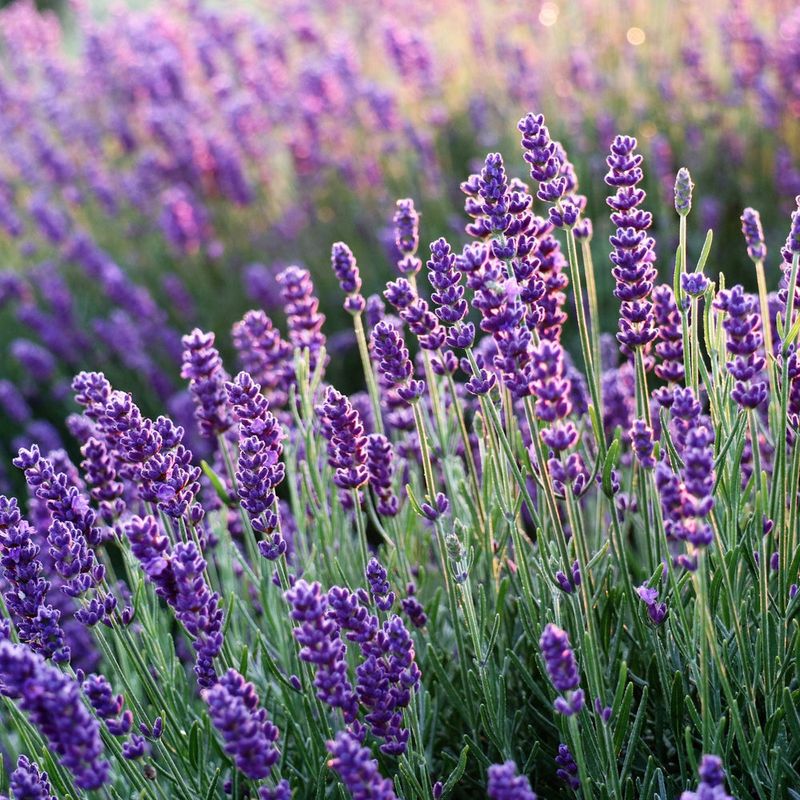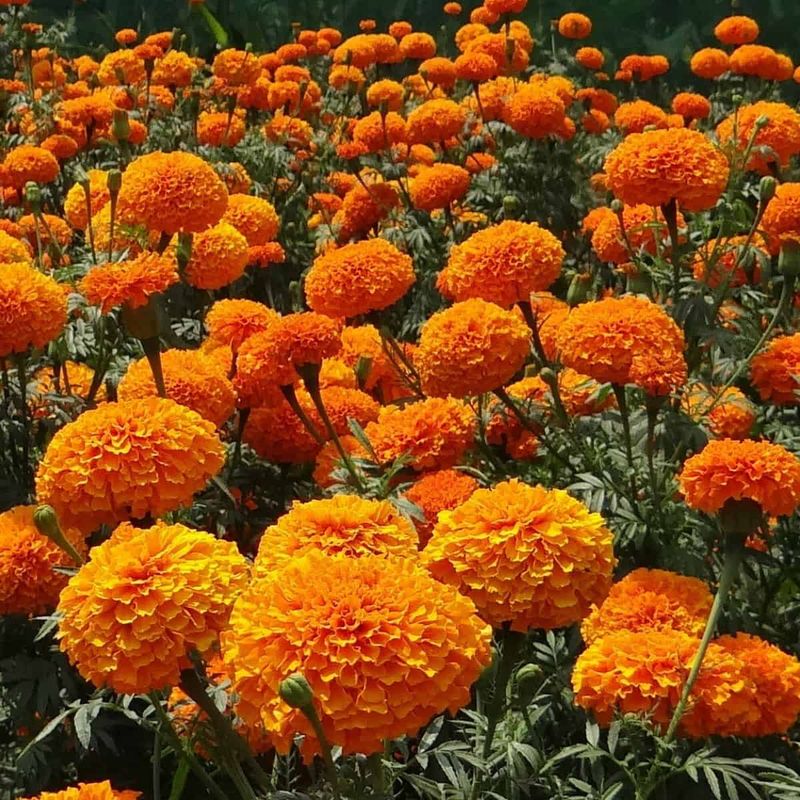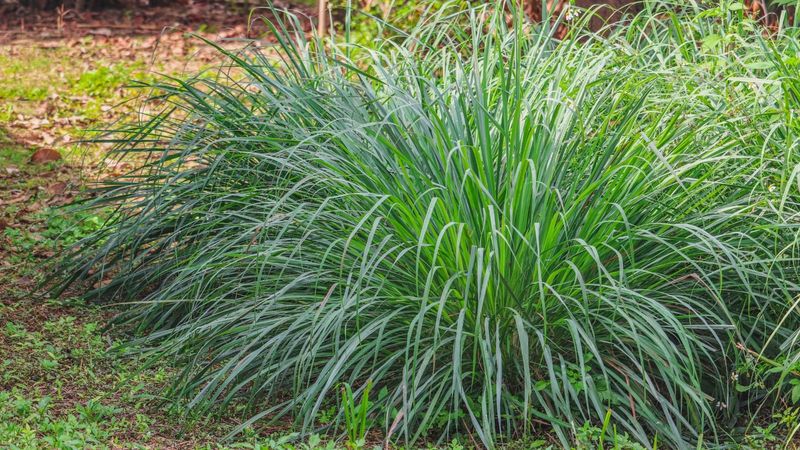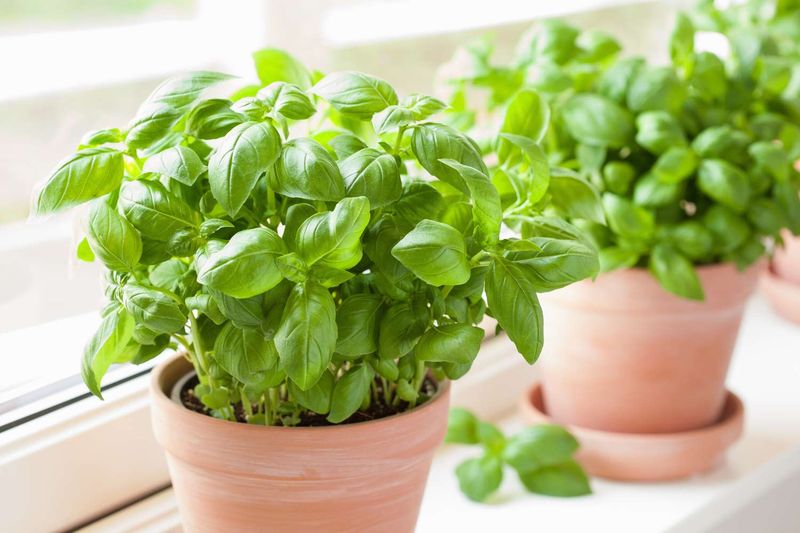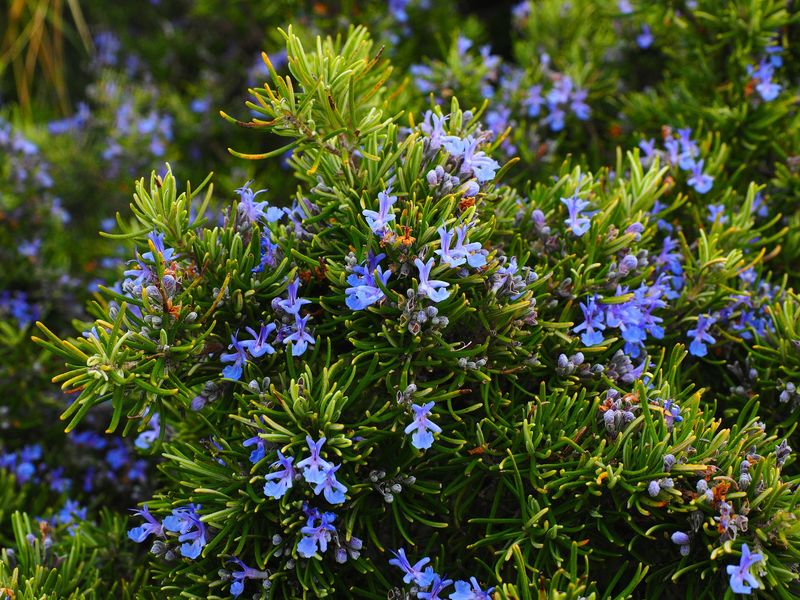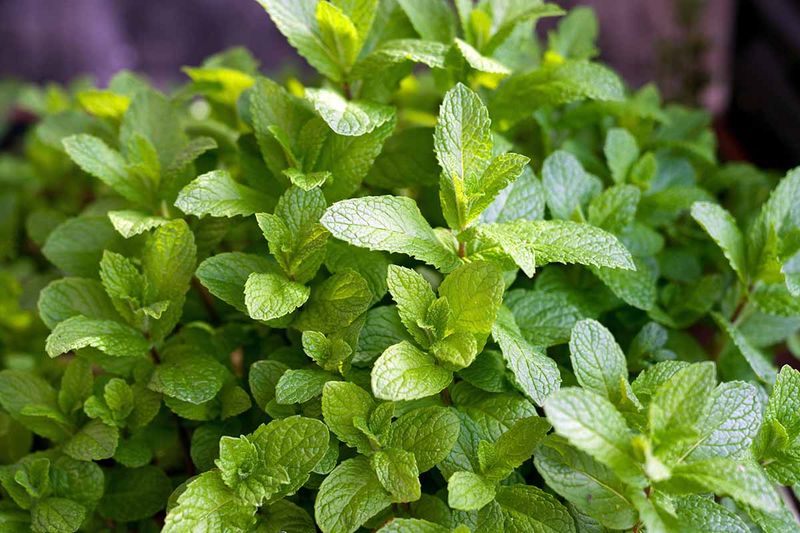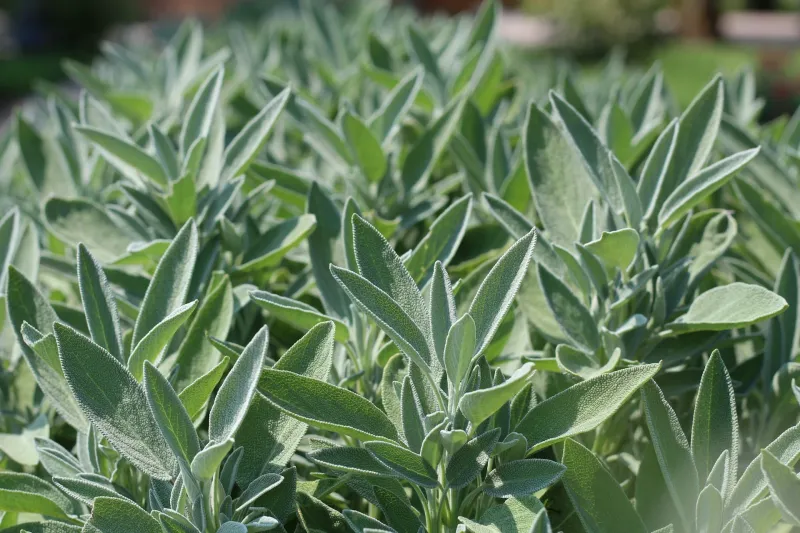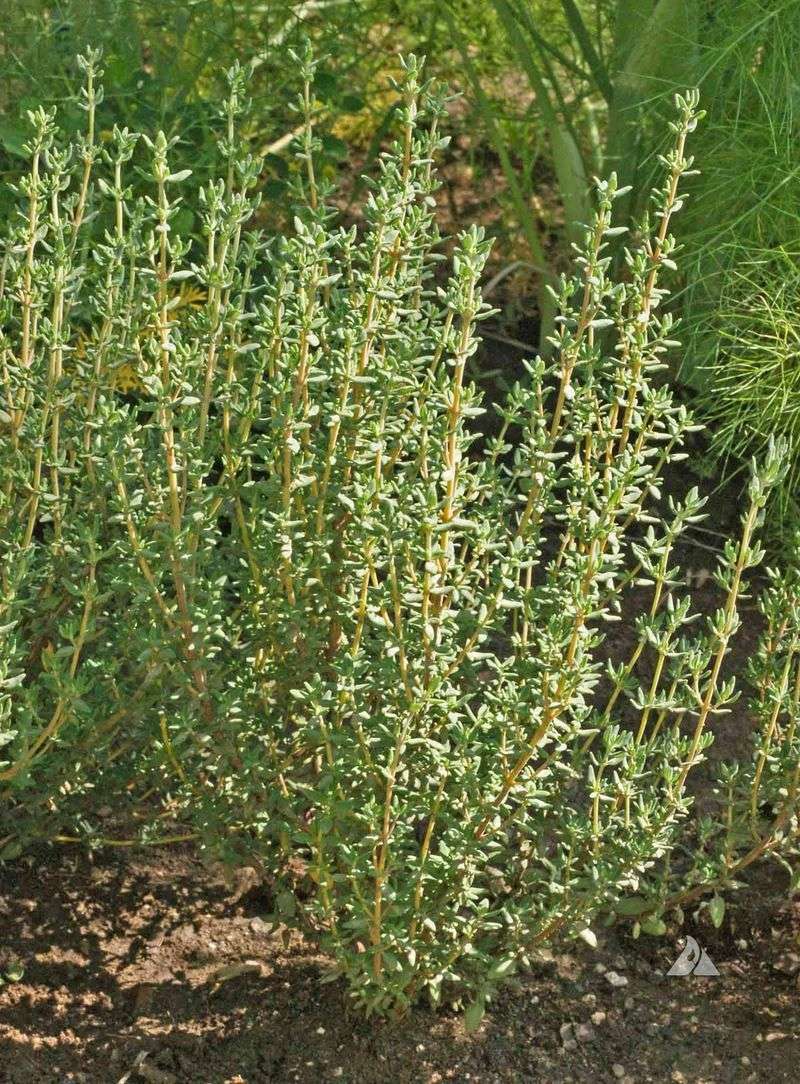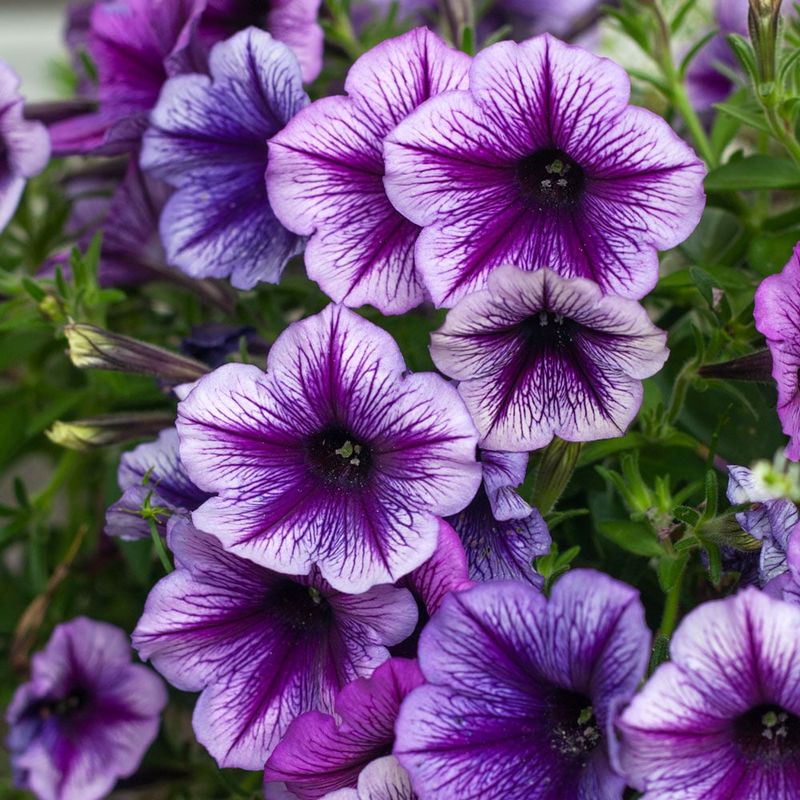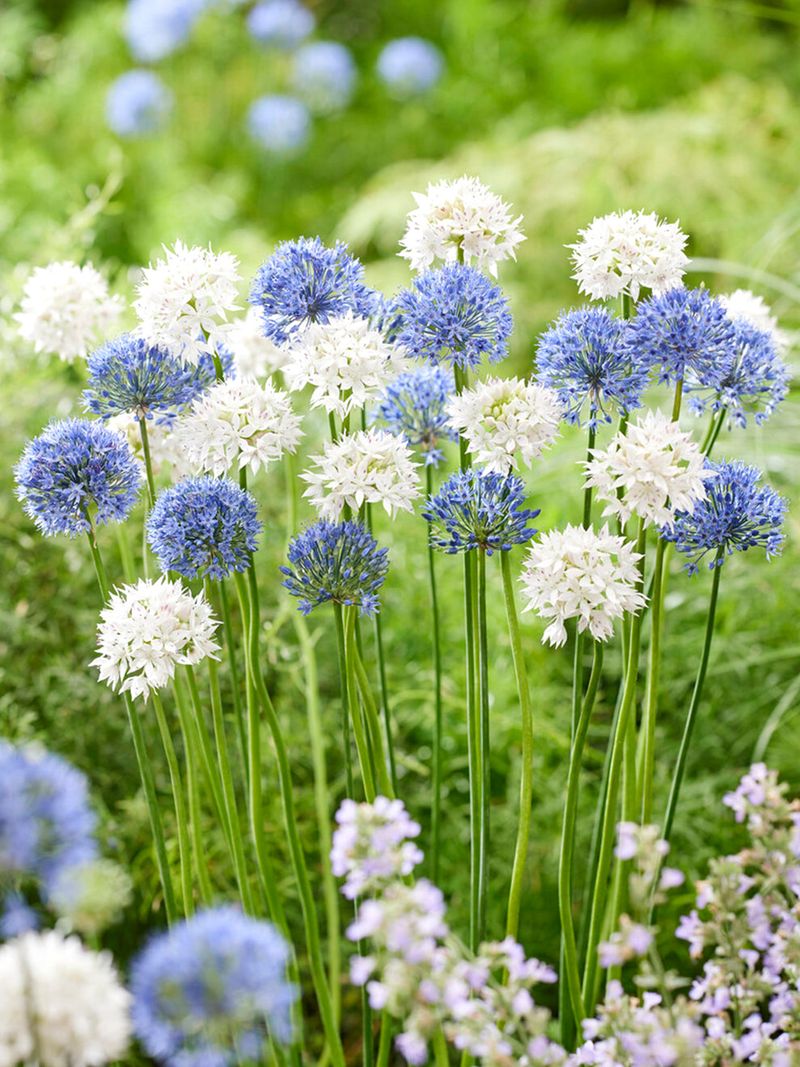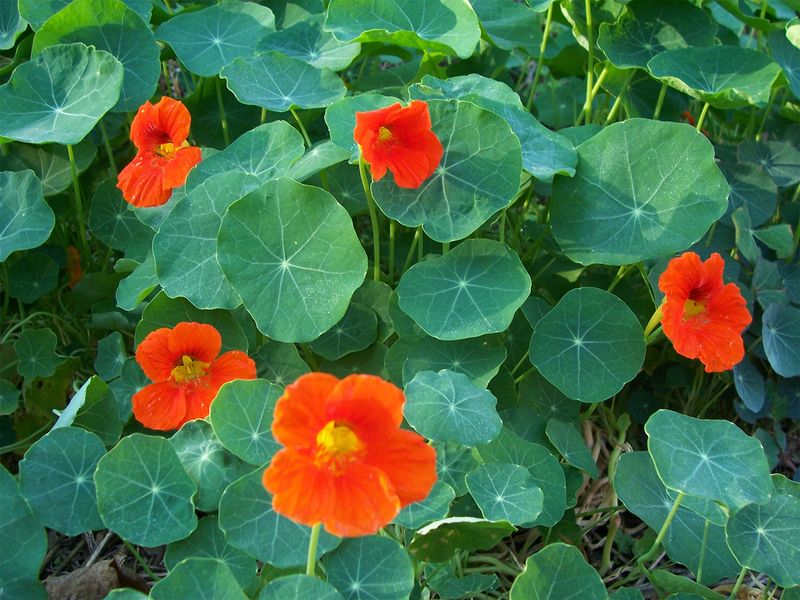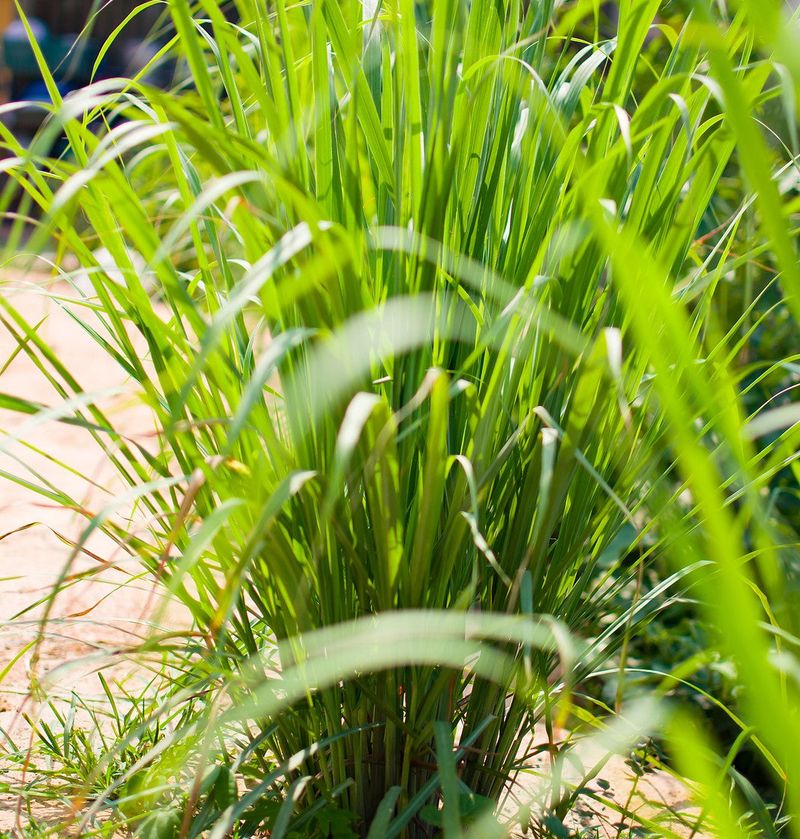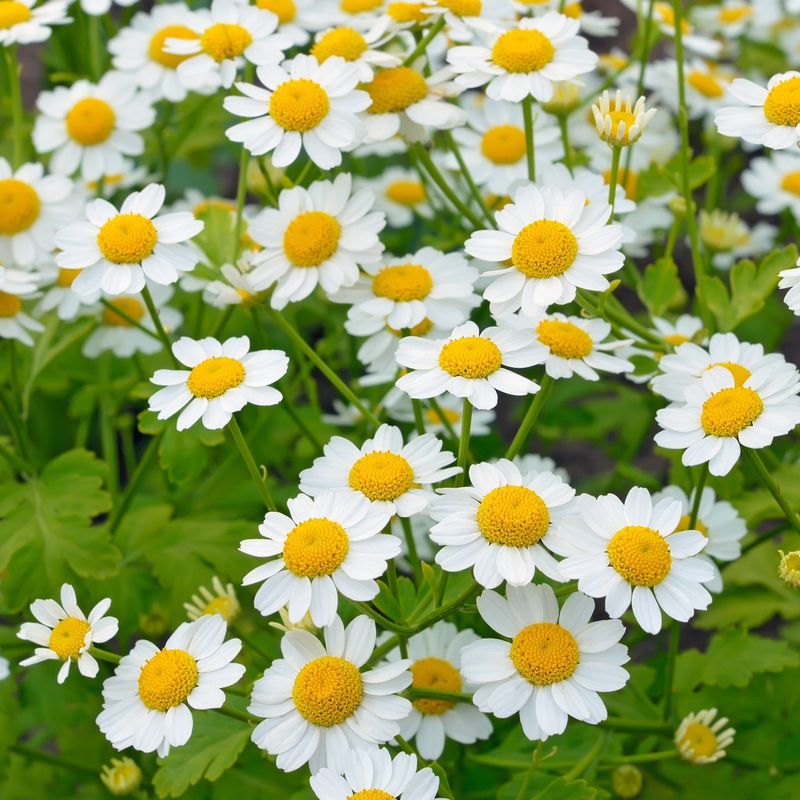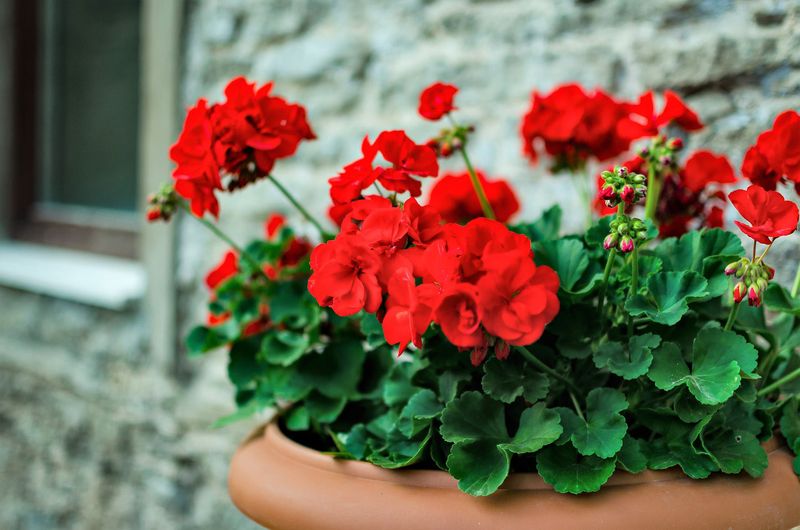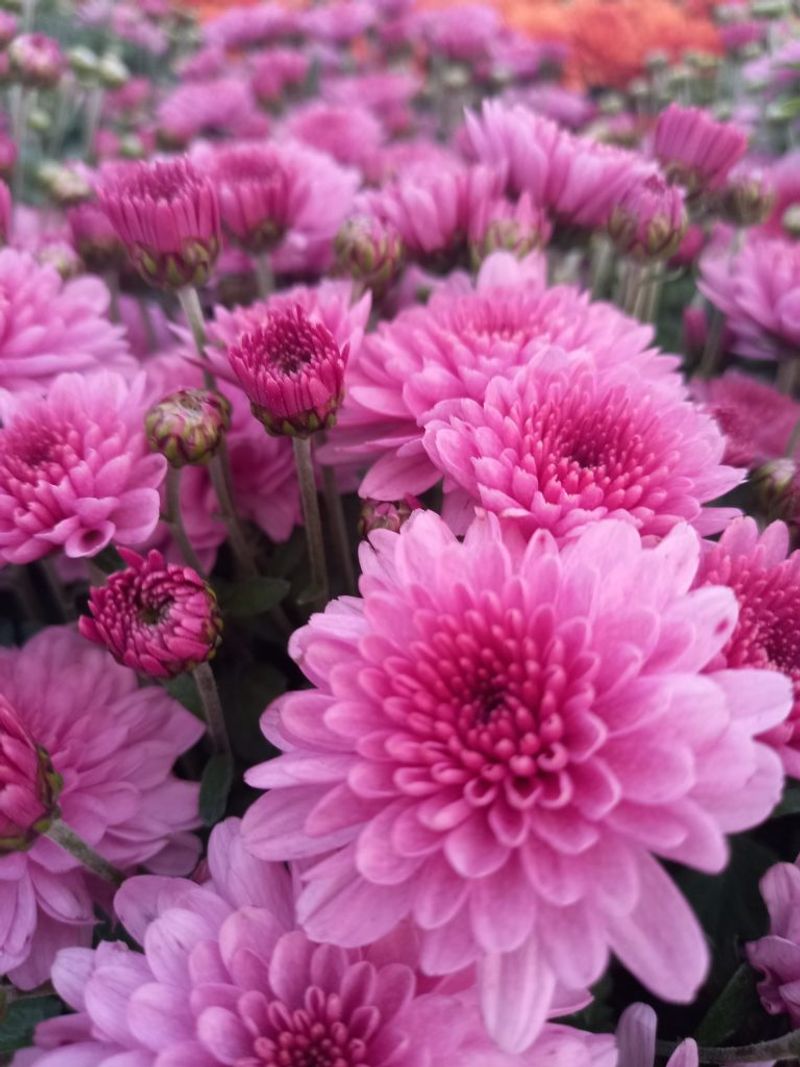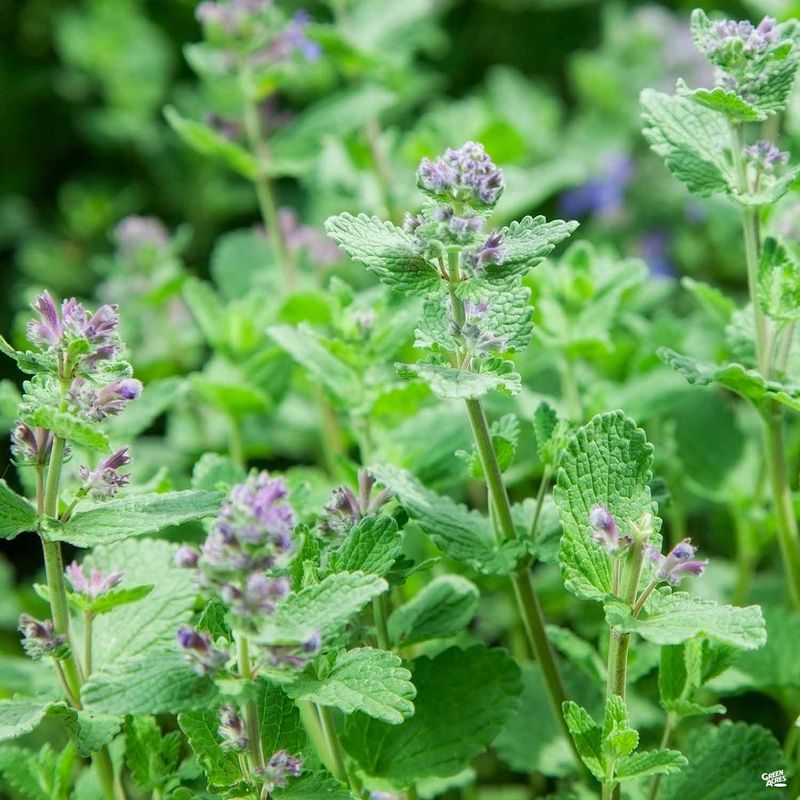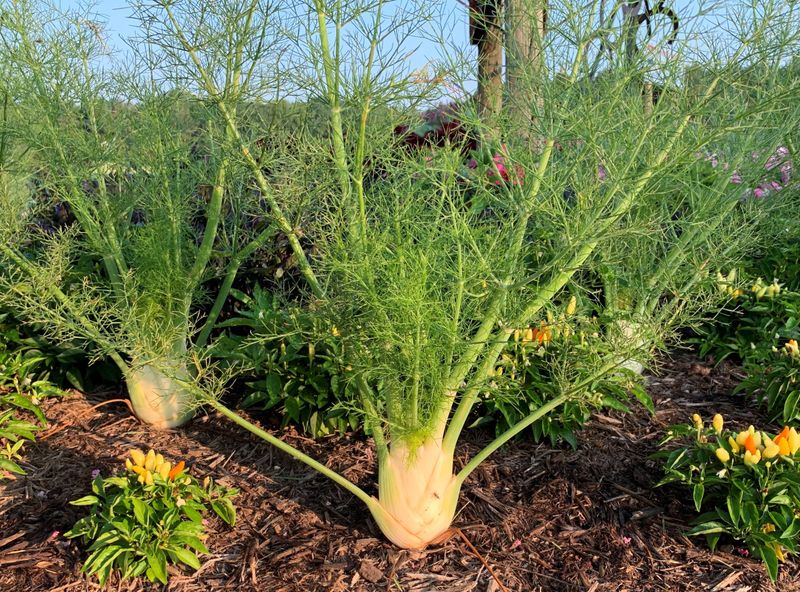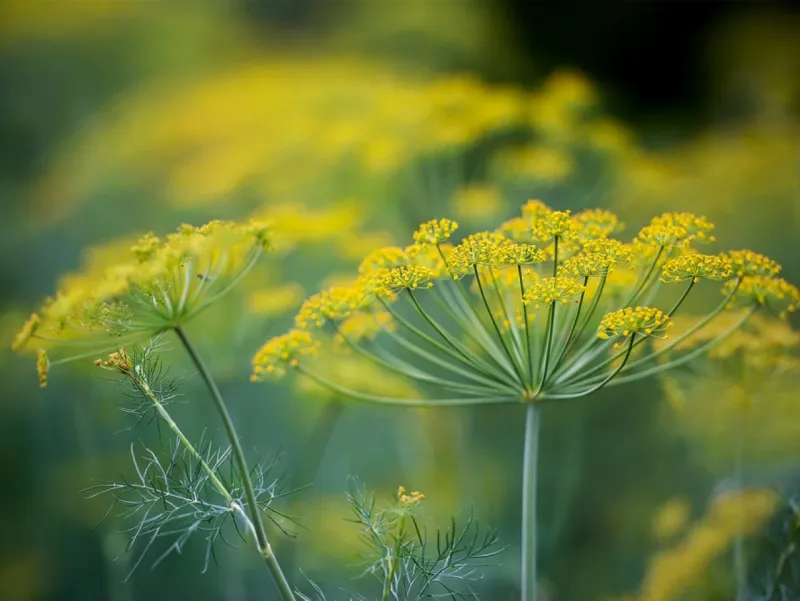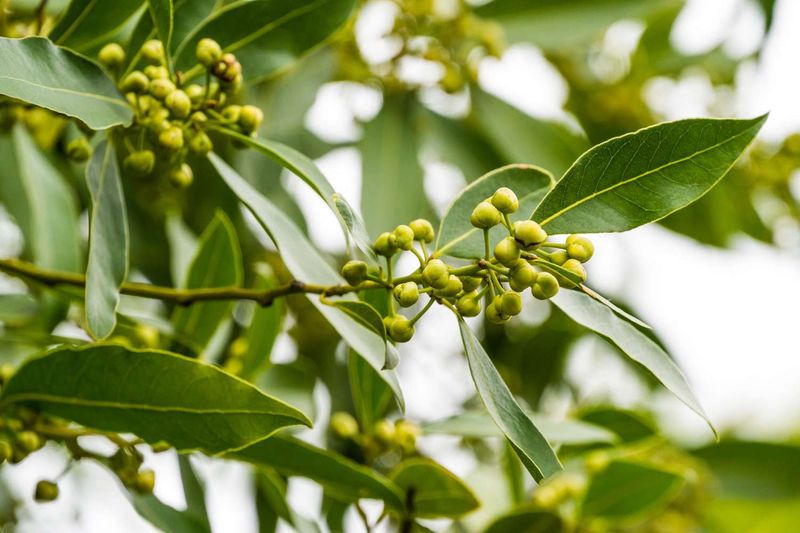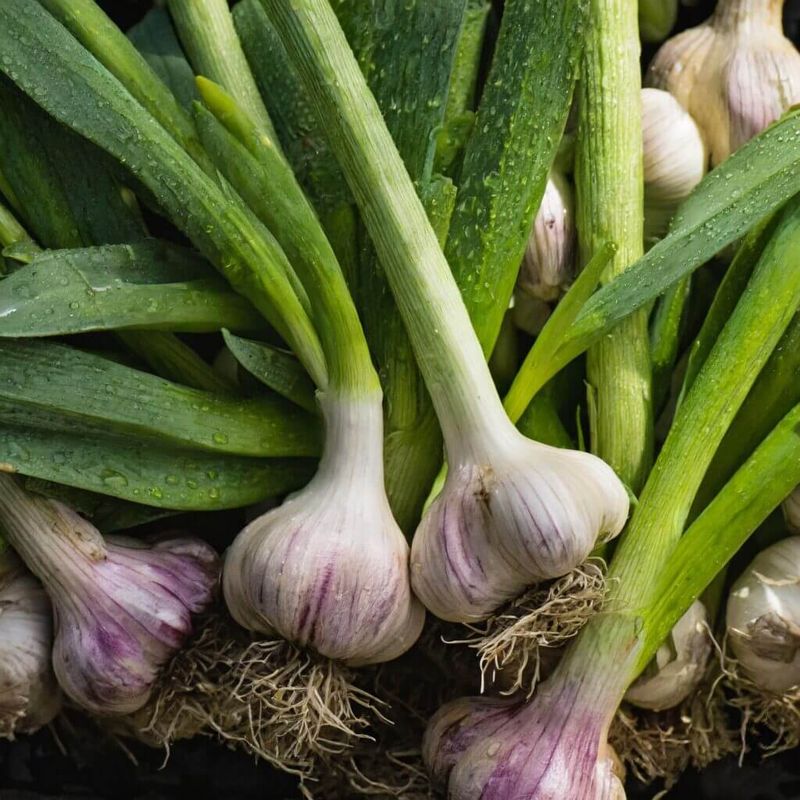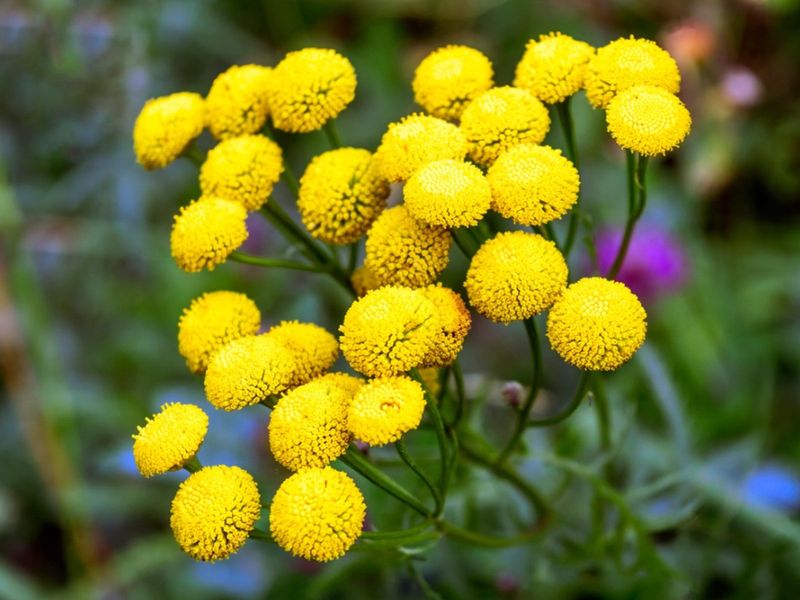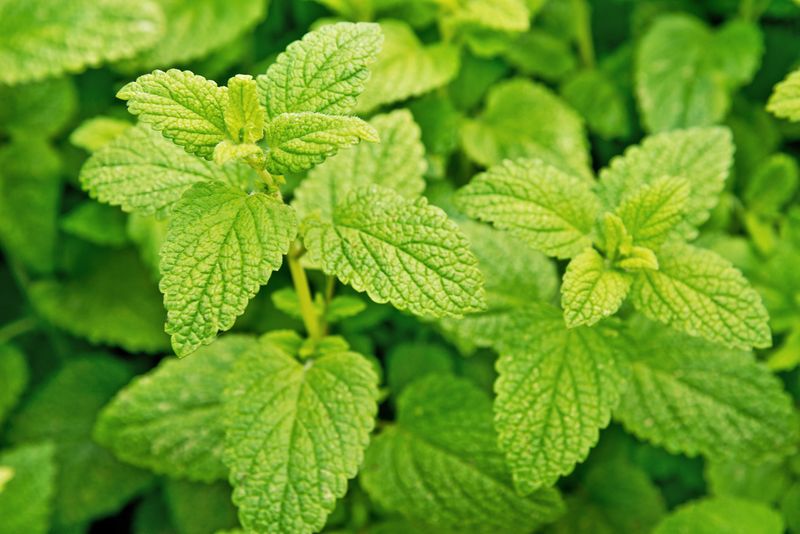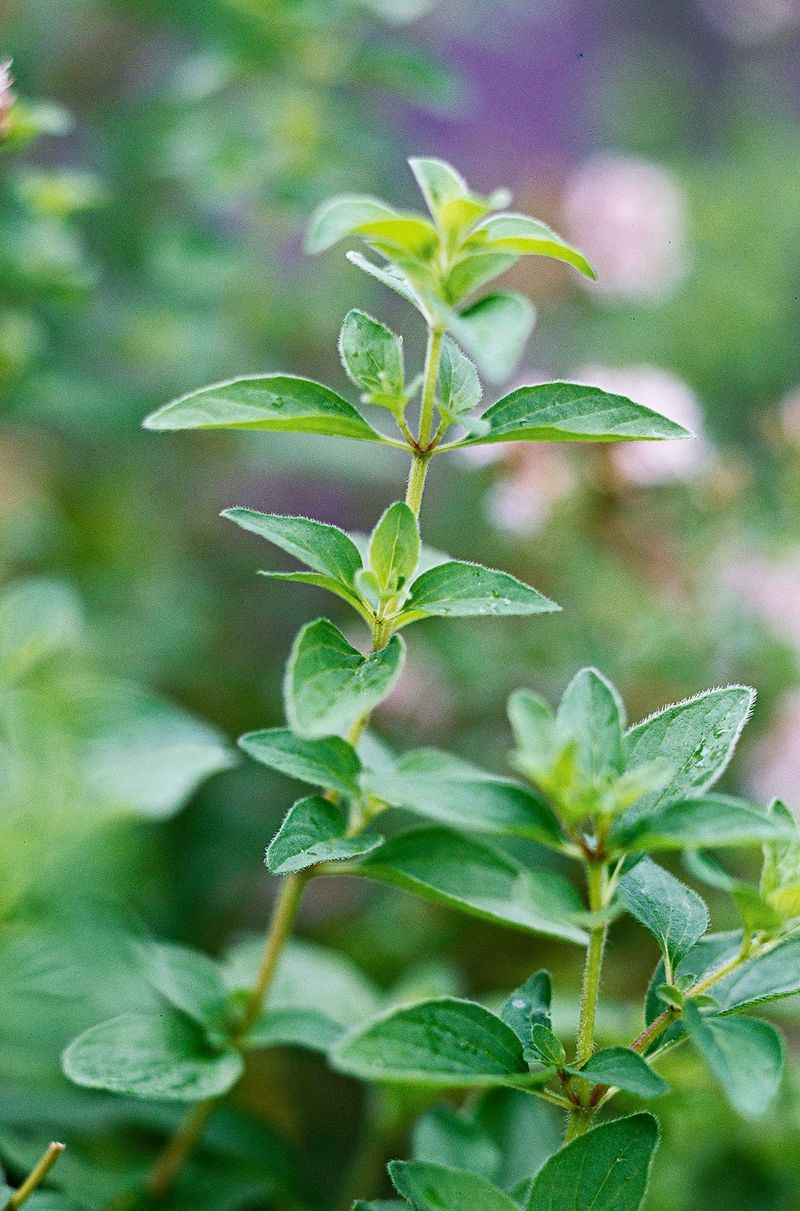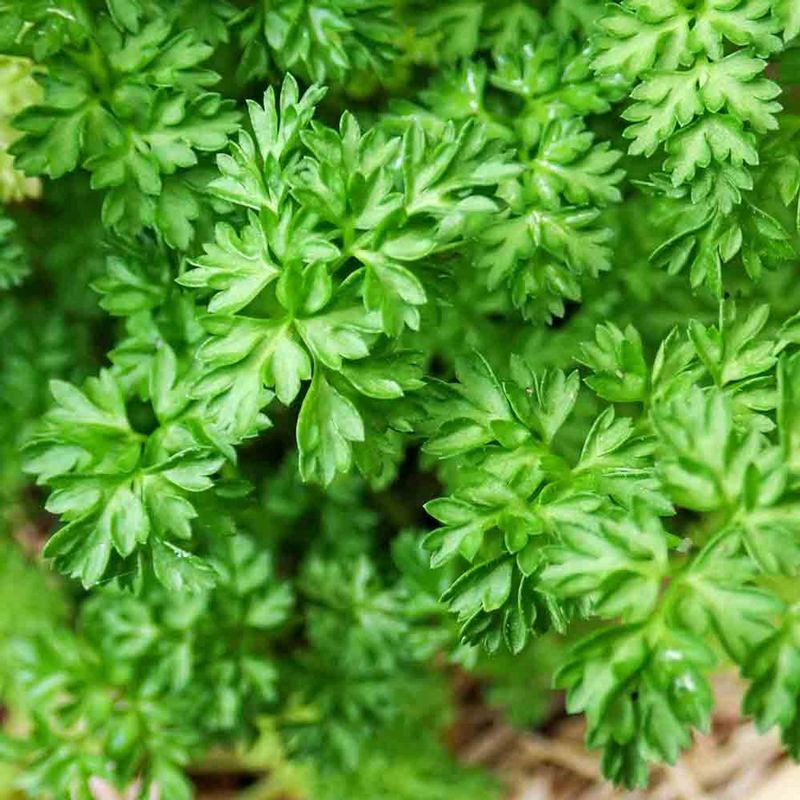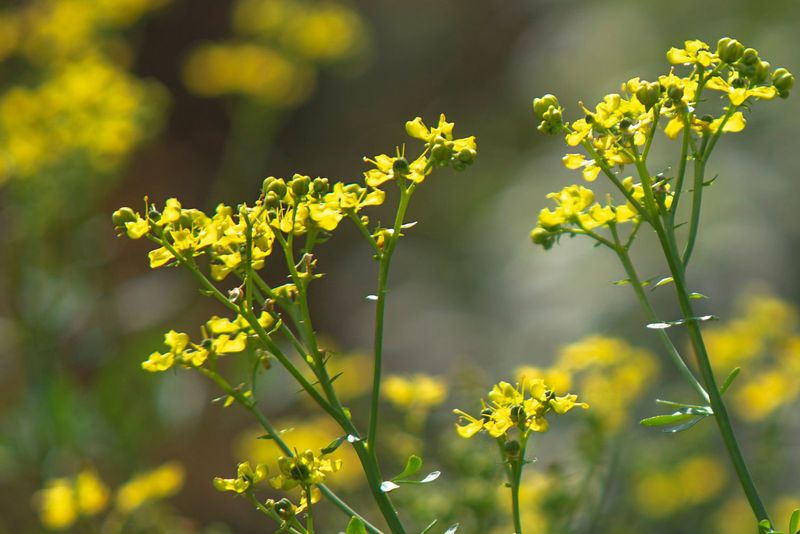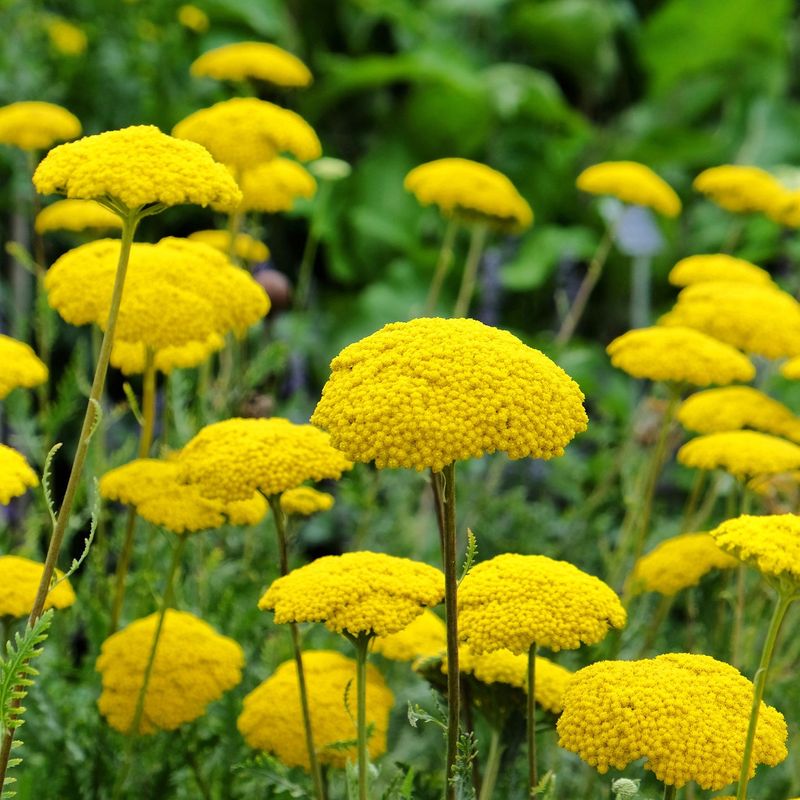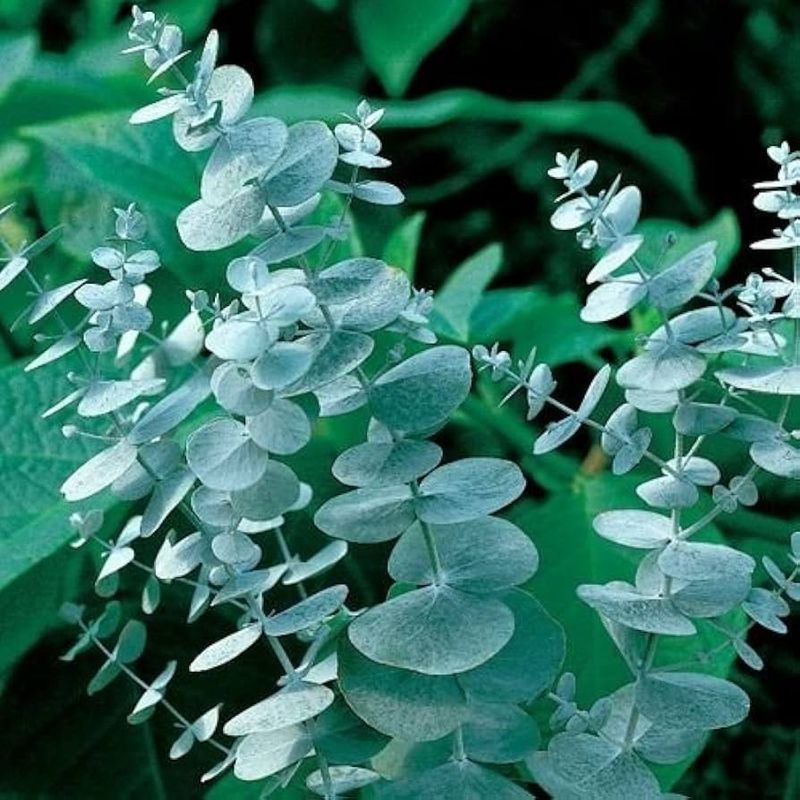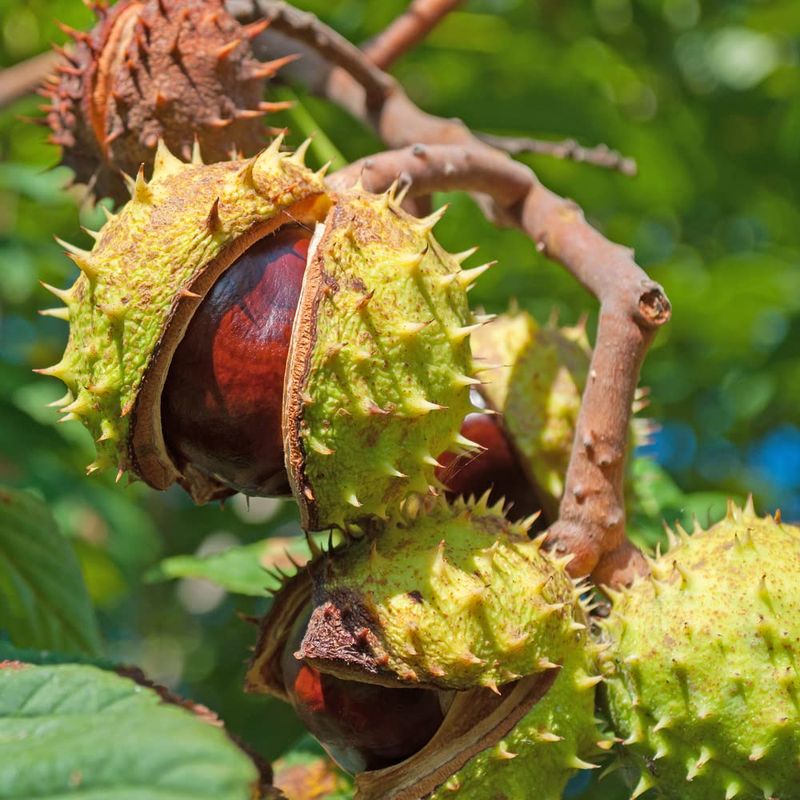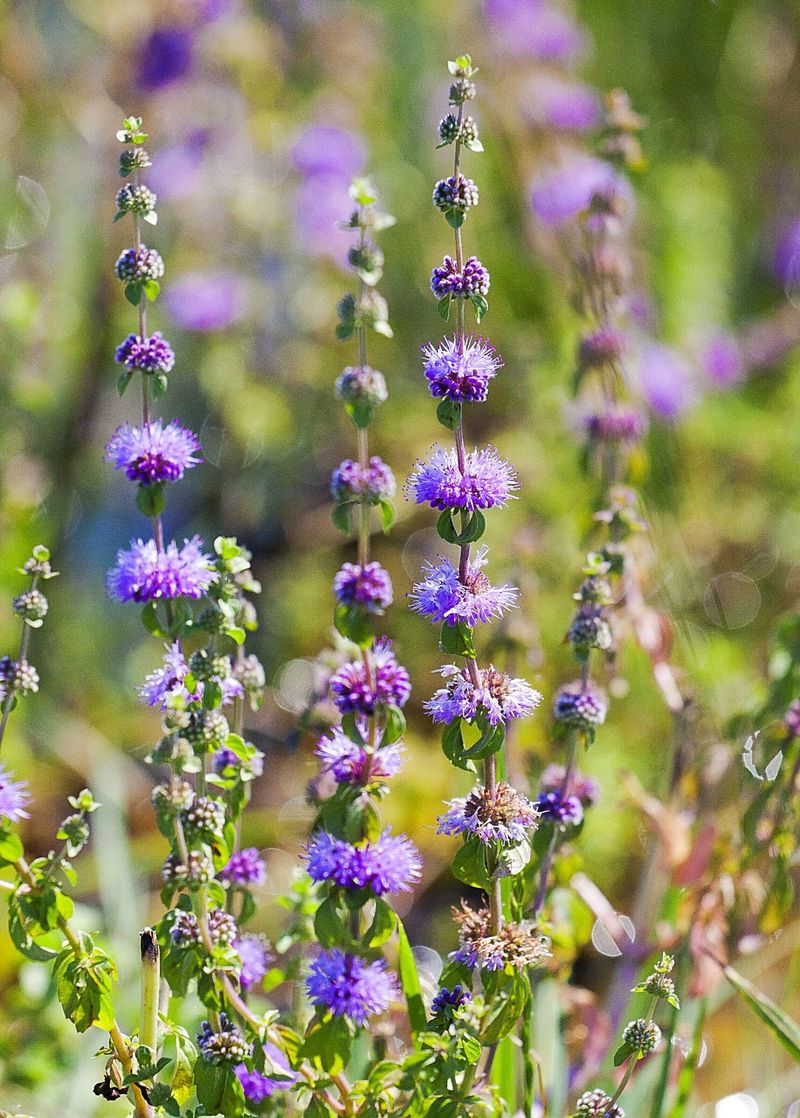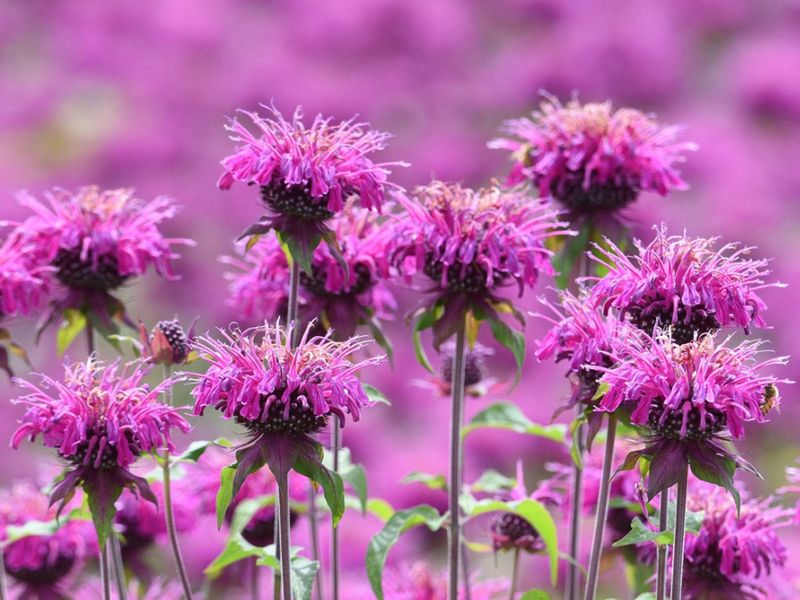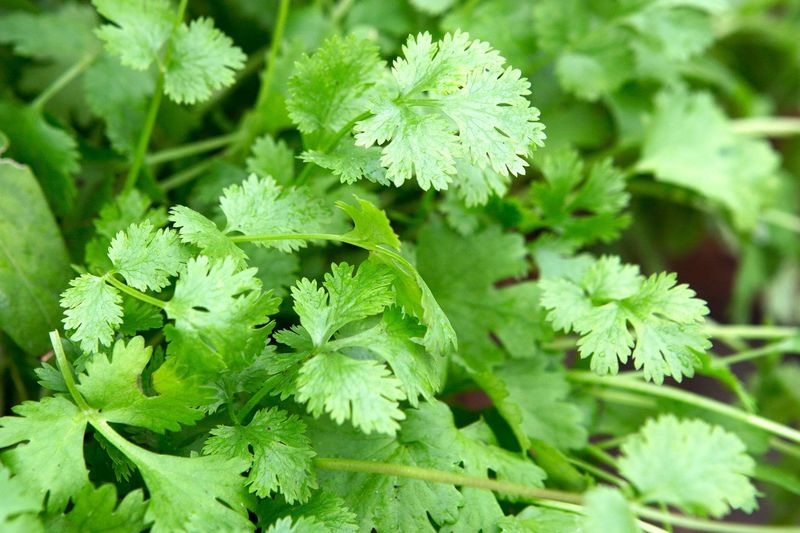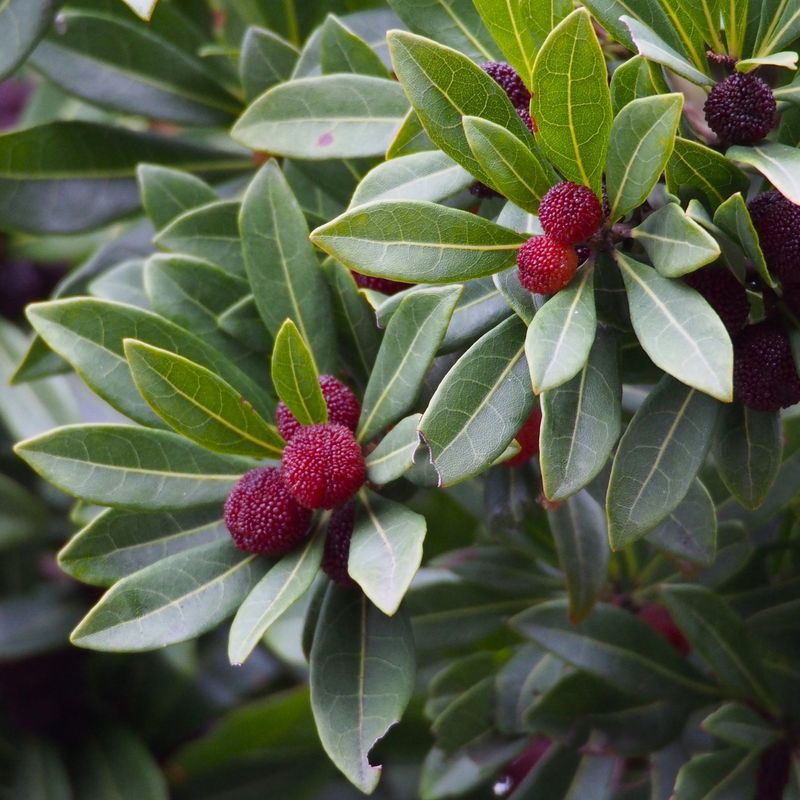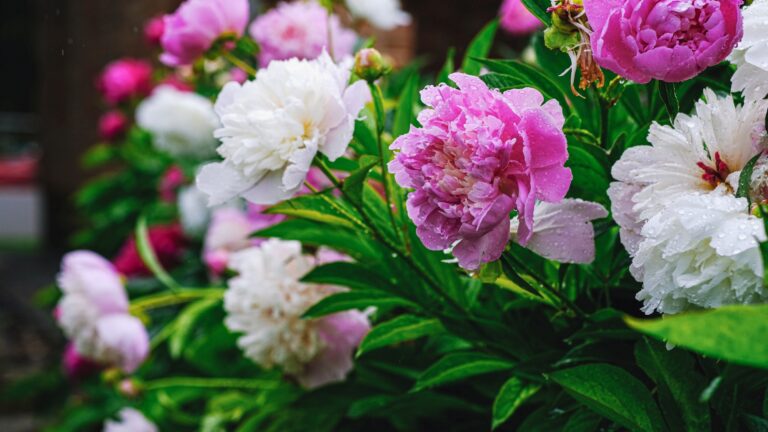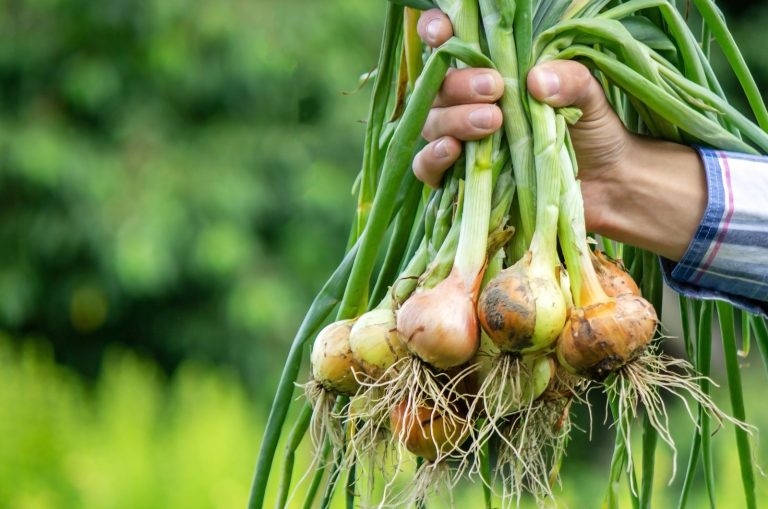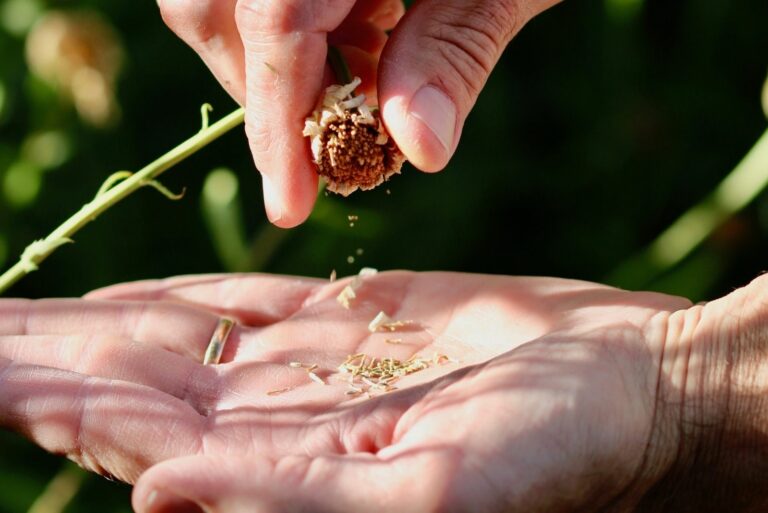These 32 Outdoor Plants Will Keep Unwanted Bugs From Eating Your Garden
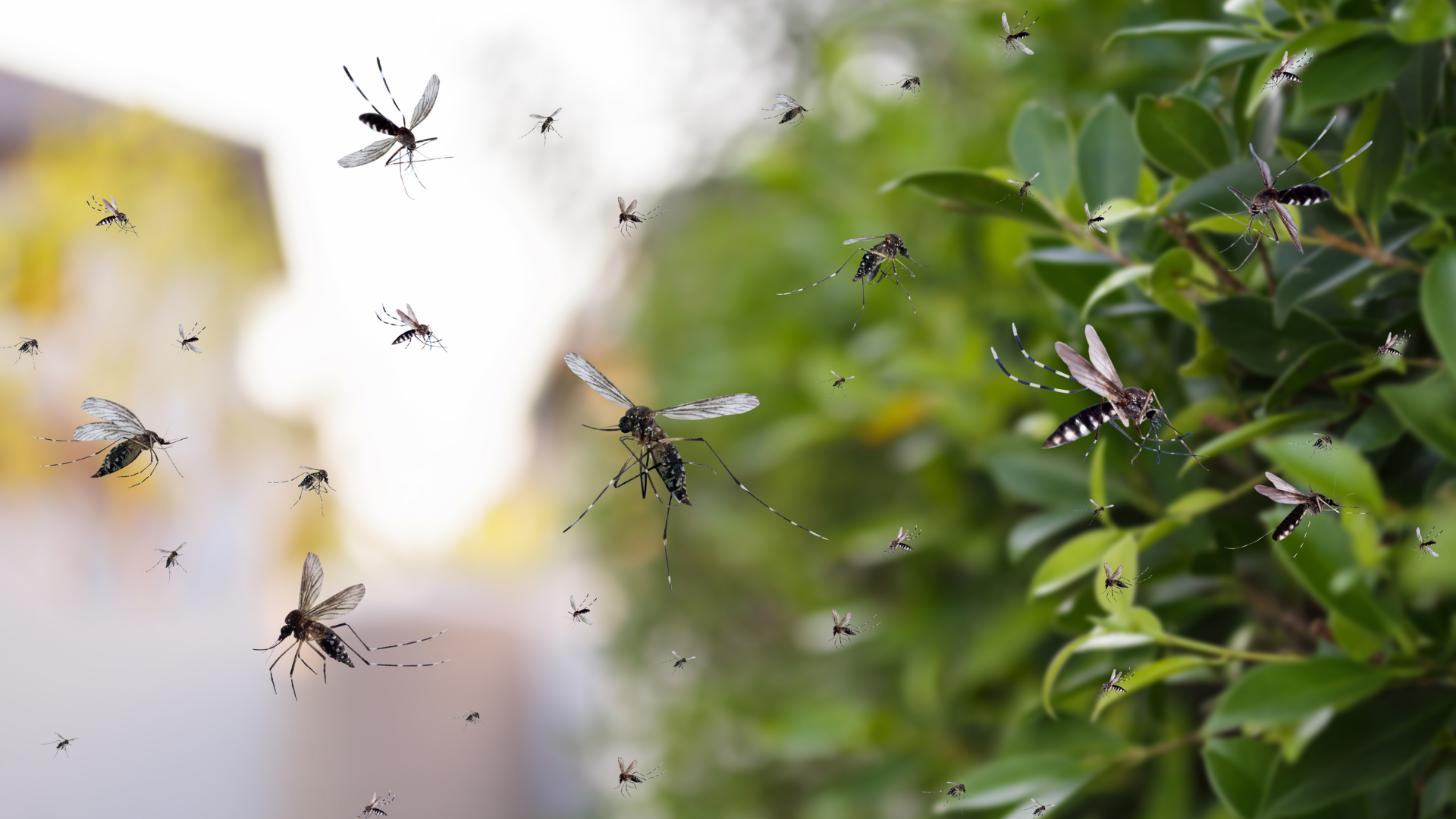
Imagine stepping into your garden, where the soft rustle of leaves greets you and the scent of fresh blooms delight your senses. But wait, there’s more!
This garden is a fortress against unwanted bugs, thanks to Mother Nature’s own squad of green defenders. Yes, we’re talking about plants that not only look good but also boot out those pesky invaders.
I took a deep dive into the world of botany to handpick 32 of these incredible plants, each with its own unique bug-repelling superpower.
1. Lavender
The air is filled with a soothing scent that seems to whisper relaxation. That’s the magic of lavender, which not only charms humans but also sends mosquitoes packing.
These purple blooms release natural oils that bugs despise. Plant them near doorways or windows, and watch the magic unfold.
Not only will they fill your garden with color and fragrance, but they’ll also serve as a defense against unwanted pests. Lavender’s ability to repel insects while makes it a garden favorite.
2. Marigold
Bright and cheerful, these flowers are more than just eye candy. Marigolds have a bold, earthy aroma that seems to deter the bug population.
They act like a neighborhood watch, keeping aphids, mosquitoes, and even rabbits at bay. Place them near vegetable patches or in decorative pots around your patio.
Their protective nature means they not only enhance the beauty of your outdoor space but also contribute to the health of your garden by warding off pests.
3. Citronella Grass
Some plants are born to be legends, and citronella grass is one of them. Often used in insect-repelling candles, its natural oils are a powerful mosquito deterrent.
The secret lies in its leaves, which, when crushed, release a fresh, lemony aroma. Grow it in large pots around seating areas to keep those bloodsuckers away while you enjoy a summer evening outside.
Citronella grass not only acts as a natural bug barrier but also adds a touch of tropical elegance to your garden. It’s functionality and aesthetics rolled into one.
4. Basil
Basil has quickly become one of my favorite garden herbs. Not just for its delicious flavor but for its unexpected talent as a pest repellent!
I first planted it next to my tomatoes, hoping to use it for pesto, but soon realized it was also keeping mosquitoes and flies at bay. The spicy, aromatic scent drives them away naturally.
Now, every time I’m out in the garden, I can enjoy the fresh basil without worrying about pesky bugs. It’s the perfect multitasker, delicious in the kitchen and a guardian for my plants!
5. Rosemary
Picture a garden that not only smells amazing but also keeps bugs at bay. Rosemary is your go-to plant for this magical setup.
Its woody scent is both pleasant and effective against mosquitoes and cabbage moths. Place it near patios or garden beds to create a fragrant bug barrier.
As a bonus, rosemary adds flavor to your culinary creations. This herb is the perfect blend of form and function, making it an asset to any outdoor space.
6. Mint
Mint is a garden powerhouse that does double duty! Not only does its fresh, invigorating scent make your garden smell amazing, but it also sends a clear “bug-off” signal to insects.
I love growing mint in pots to keep it contained. Trust me, this plant can spread quickly! I place it near doorways or windows to keep bugs out while enjoying its fragrant aroma.
Plus, having mint on hand means fresh mojitos and teas are always within reach. It’s the ultimate plant that keeps on giving, inside and out!
7. Sage
At first glance, it’s the soft, gray-green leaves that capture attention. Then you learn about sage’s impressive bug-repelling powers.
Its pungent aroma is disliked by many insects, including flies and mosquitoes. Plant sage in your herb garden to protect your veggies from invaders.
Whether used fresh or dried, sage also adds a savory touch to culinary dishes. This plant is a powerhouse of protection and flavor, making it an indispensable ally in your gardening toolkit.
8. Thyme
Small but mighty, thyme is the garden’s stealthy defender. Its aromatic oils are a known irritant to mosquitoes and cabbage worms. All while adding a subtle flavor to your cooking.
Integrate thyme into your rock gardens or borders for both decorative and defensive benefits. This resilient herb thrives in poor soil, requiring minimal care.
It’s like the secret agent of the plant world, quietly working to keep your garden safe from pests. With thyme, you’re never alone in the battle against bugs.
9. Petunia
Here’s a flower that doubles as a garden bouncer. Petunias release a compound that makes aphids, tomato hornworms, and other pests think twice about entering your garden.
Plant them in hanging baskets or flower beds to enjoy their diverse colors while safeguarding your plants. Petunias are easy to grow and maintain, providing a splash of color and protection without any fuss.
Their presence is a visual delight and a natural insect deterrent, ensuring your garden remains a tranquil sanctuary.
10. Allium
Alliums are the unsung heroes of my garden, offering both style and pest protection. With their striking blooms, these plants not only add architectural flair but also deter pests like aphids, slugs, and carrot flies.
I love scattering them around my garden to create a natural barrier while keeping things visually interesting.
As part of the onion family, they’re incredibly easy to grow too! Alliums are the silent guardians of my garden, ensuring peace and beauty while keeping pests at bay.
11. Nasturtium
Sometimes, beauty is the best defense. Nasturtiums are a feast for the eyes and a natural repellant for pests like aphids and whiteflies. Their peppery scent is a turn-off for bugs.
Grow them as companion plants among vegetables to protect your crops while enjoying their vibrant blooms. Nasturtiums are also edible, adding a spicy kick to salads.
This dual-purpose plant offers beauty, protection, and flavor, making it a garden must-have. With nasturtiums, you’re not just planting flowers; you’re planting peace of mind.
12. Lemongrass
In the realm of plants, lemongrass holds a special place. Known for its citrusy aroma, it serves as a natural mosquito repellent. The oils extracted from its leaves are often used in sprays and candles.
Grow lemongrass near seating areas or pathways to enjoy its refreshing scent while keeping mosquitoes at bay. It’s a versatile plant that also adds flavor to culinary dishes.
Combining beauty, function, and aroma, lemongrass is a star player in any garden. It’s not just a plant; it’s nature’s own bug spray.
13. Feverfew
With its dainty white flowers, feverfew might seem unassuming. Yet, this plant is a force to be reckoned with when it comes to repelling insects. Its strong scent keeps mosquitoes and other pests at a distance.
Plant feverfew in your flower beds or containers to create a fragrant barrier against unwanted bugs. In addition to its pest control benefits, feverfew is often used for its medicinal properties.
This plant is not just a pretty face; it’s a multifunctional asset to any garden. Feverfew means business in the war against bugs.
14. Geranium
The geranium, with its stunning blooms, is more than just decorative. These flowers emit a scent that repels mosquitoes and other insects. Their colors make them a garden favorite.
Place geraniums in pots or garden beds to enjoy their beauty and bug-repelling benefits. They’re easy to maintain and can bloom throughout the season.
Geraniums offer a perfect blend of aesthetic appeal and functionality, making them an essential addition to any outdoor space. Their presence ensures your garden remains both beautiful and bug-free.
15. Chrysanthemum
Chrysanthemums, or mums, bring a burst of color to any garden. But their beauty is just one part of their charm. Mums contain a natural compound called pyrethrin, which is lethal to many insects.
Plant them along borders or in containers to protect your garden while enjoying their display. Chrysanthemums are easy to grow and care for, making them a popular choice for gardeners.
These flowers are the garden’s undercover agents, working hard to keep pests at bay.
16. Catnip
Catnip is a garden surprise! While it might drive your cats wild, it’s also a powerful insect repellent. Its strong scent naturally keeps mosquitoes, flies, and even cockroaches away.
I love growing catnip in containers to keep it contained and prevent it from taking over the garden. Not only does it protect my plants, but my cats also enjoy a little treat now and then!
Catnip is the perfect blend of fun and function, providing natural pest control with a side of feline entertainment. It’s a win-win for both me and my garden!
17. Fennel
In the culinary world, fennel is known for its anise-like flavor. But in the garden, it’s a powerful insect repellent. The plant’s aromatic oils keep aphids and snails away.
Grow fennel near vegetable patches to create a natural barrier against pests. Its feathery leaves and bright yellow flowers add visual interest to any space.
Fennel offers dual benefits of flavor and protection, making it a valuable addition to your garden. With fennel, you’re not just planting an herb; you’re planting a safeguard.
18. Dill
Dill may be known for its pickling prowess, but it’s also a garden warrior. Its aromatic scent confuses and deters pests like aphids and spider mites.
Plant dill among vegetables to protect them naturally while enhancing your garden’s flavor profile. As a bonus, dill attracts beneficial insects like ladybugs and bees.
This herb offers a trifecta of benefits: pest control, flavor enhancement, and pollinator support. Dill is the unsung hero of the herb garden, offering protection with a side of culinary delight.
19. Bay Leaf
The humble bay leaf is more than just a kitchen staple. In the garden, its strong aroma acts as a natural insect repellent, keeping moths and flies at bay.
You can grow bay leaf in pots to easily move them around your garden or patio. Their leaves add a touch of elegance while protecting your space from pests.
Bay leaf plants offer a unique combination of beauty and practicality, making them a garden essential. With bay leaf, you’re not just seasoning your dishes; you’re seasoning your garden with protection.
20. Garlic
Garlic is my secret weapon in the garden! Not only does its pungent scent keep aphids, slugs, and other pests at bay, but it also adds a flavorful punch to my meals.
I love planting garlic next to my roses and veggies. It’s like a natural shield for my plants. This multitasking plant is perfect for both culinary use and pest control, making it a must-have in my garden.
Garlic isn’t just a kitchen staple; it’s the ultimate garden defender, keeping my plants safe and flavorful all season long!
21. Tansy
Tansy is the plant world’s unsung hero. Its bright yellow flowers not only add charm but also repel ants, fleas, and flies with their strong aroma.
Grow tansy along borders or in wildflower gardens to create a natural bug barrier. It’s a low-maintenance plant that offers beauty and function in one package.
Tansy is the garden’s quiet achiever, working tirelessly to keep pests at bay. With tansy, you’re not just adding color; you’re adding a layer of protection.
22. Lemon Balm
The refreshing scent of lemon balm is enough to lift spirits, but for mosquitoes, it’s a different story. This plant emits an aroma that sends those pesky insects running.
Grow lemon balm in pots or garden beds to enjoy its bug-repelling benefits while adding a touch of greenery to your space.
The leaves can also be used to make soothing teas. Lemon balm offers a tranquil retreat from bugs, making it a delightful addition to any garden.
23. Oregano
Oregano may spice up your pizza, but in the garden, it’s a pest’s worst nightmare. Its aromatic oils repel mosquitoes and other insects, helping to keep your garden pest-free.
Plant oregano near vegetable gardens or pathways to enjoy its protective benefits. This hardy herb offers both culinary and garden advantages, making it a versatile addition to your outdoor space.
Oregano proves that protecting your garden doesn’t have to be boring, and it adds a flavorful twist to your gardening efforts.
24. Parsley
Parsley is more than just a garnish; it’s a garden guardian. Its scent deters pests like carrot flies, ensuring your veggies grow unhindered.
Plant parsley near root vegetables to create a protective barrier against invaders. This herb offers both culinary and pest control benefits, making it a valuable addition to any garden.
With parsley, you’re not just growing herbs; you’re growing a natural defense system that keeps your garden thriving.
25. Rue
With its distinctive blue-green leaves, rue is a striking addition to any garden. But its real talent lies in pest control, as it naturally repels fleas, mosquitoes, and even Japanese beetles.
Plant rue in sunny areas to enjoy its protective benefits while adding a unique touch to your landscape. This hardy plant thrives in poor soil, requiring little maintenance.
Rue is the garden’s secret weapon, offering beauty and function in one package. It’s not just a plant; it’s a statement in the fight against bugs.
26. Yarrow
Yarrow is the garden’s multitasker, offering both beauty and protection. Its aromatic oils are a natural deterrent to many insects, including mosquitoes and aphids.
Grow yarrow in wildflower meadows or garden beds to enjoy its bug-repelling benefits while adding a touch of color.
This hardy plant thrives in various conditions, making it a versatile addition to any landscape. With yarrow, you’re not just planting flowers; you’re planting a defense line against garden pests.
27. Eucalyptus
While it’s famous as a koala favorite, I’ve discovered its strong scent is also a powerful natural insect repellent. Especially against mosquitoes.
I grow it in pots near my outdoor spaces, where it doubles as both a beautiful green addition and a bug deterrent. The leaves are great for crafts and essential oils too.
With eucalyptus, I’m not just growing a tree; I’m creating a pest-free zone that’s as functional as it is beautiful.
28. Horse Chestnut
The horse chestnut tree stands tall as a garden sentinel. Its seeds emit a scent that repels spiders and other insects, making it a natural choice for pest control.
Plant horse chestnut in larger gardens or parks to enjoy its protective benefits while adding a touch of grandeur to the landscape.
This tree offers a unique combination of beauty and functionality, making it a valuable asset to any outdoor space.
29. Pennyroyal
Pennyroyal is the plant world’s best-kept secret. Its minty fragrance is a potent bug deterrent, keeping fleas and mosquitoes at bay.
Grow pennyroyal in pots or garden beds to enjoy its protective benefits while adding a touch of color to your space.
This herb offers both aesthetic and functional advantages, making it a versatile addition to any garden. With pennyroyal, you’re not just growing herbs; you’re growing a natural bug barrier that works wonders.
30. Bee Balm
Bee balm is the life of the garden party. Its bright red blooms not only attract pollinators but also repel mosquitoes and other pests with their strong scent.
Plant bee balm near vegetable gardens or patios to enjoy its beauty and bug-repelling benefits. This plant offers a perfect blend of color and function, making it a standout addition to any garden.
With bee balm, you’re not just growing flowers; you’re growing a defense against insects.
31. Coriander
Coriander, known for its culinary uses, doubles as a garden defender. Its aromatic oils deter insects like aphids and spider mites, helping to keep your garden pest-free.
Plant coriander near vegetables or in herb gardens to enjoy its protective benefits while enhancing your cooking. This herb offers both flavor and function, making it a valuable addition to any outdoor space.
32. Bayberry
In the coastal world of plants, bayberry earns its place as a natural bug repellent. Its aromatic leaves and berries keep mosquitoes and other pests at bay.
Grow bayberry in borders or garden beds to enjoy its protective benefits while adding a touch of greenery to your space.
This shrub offers both aesthetic and functional advantages, making it a versatile addition to any garden.

